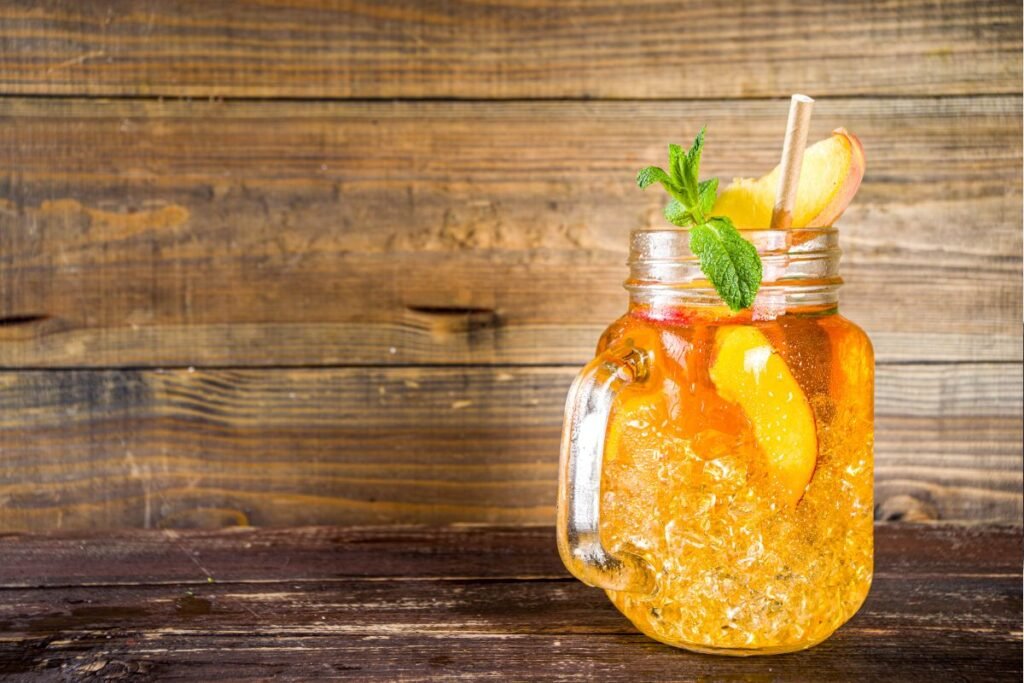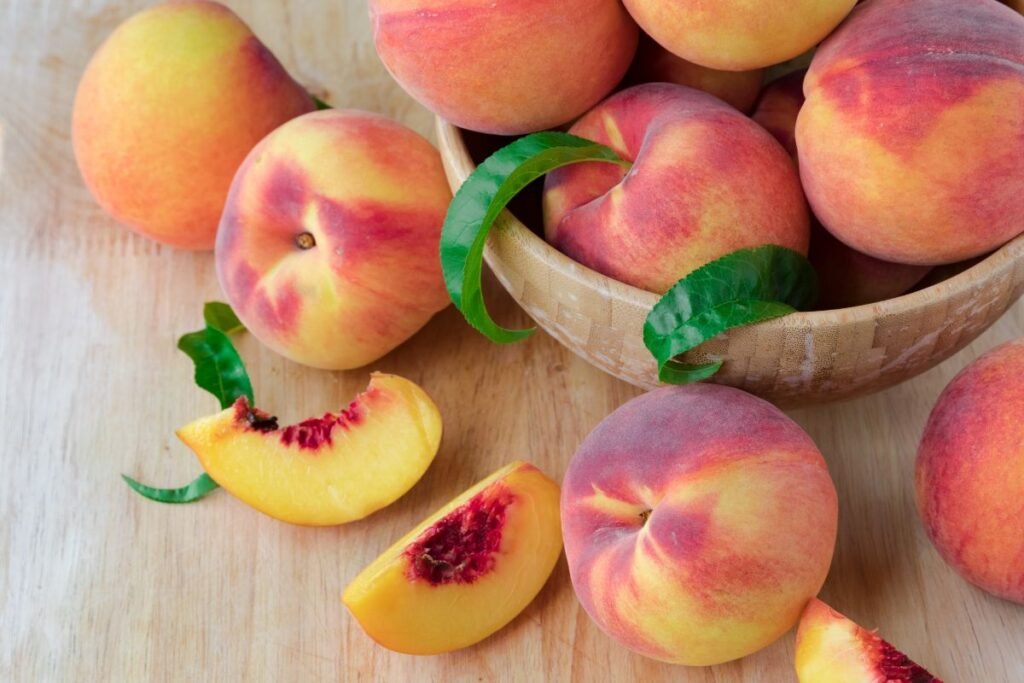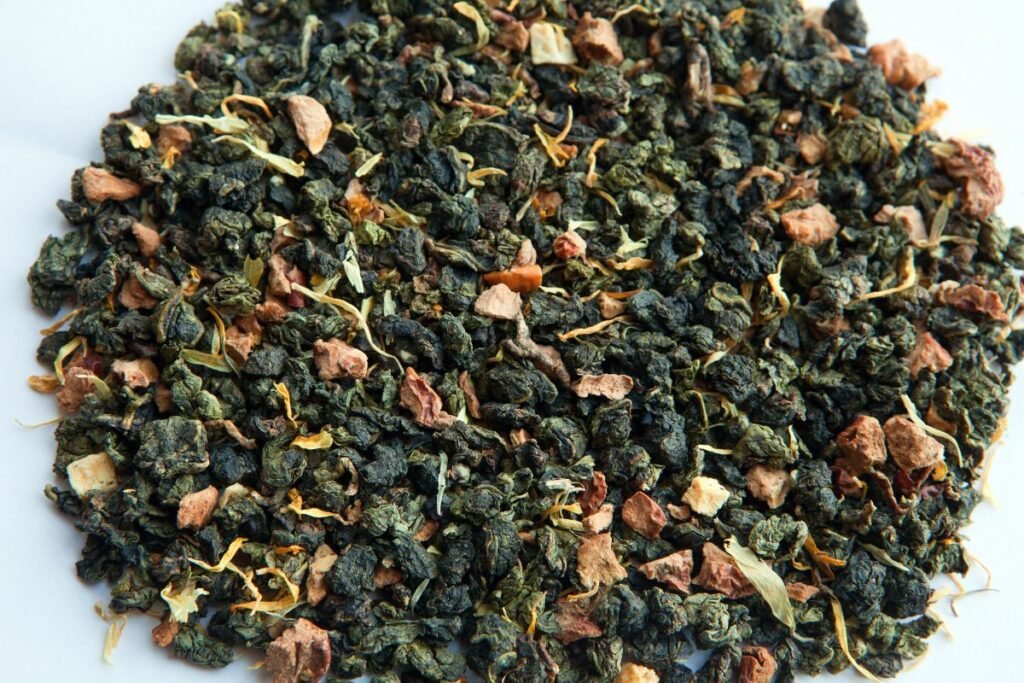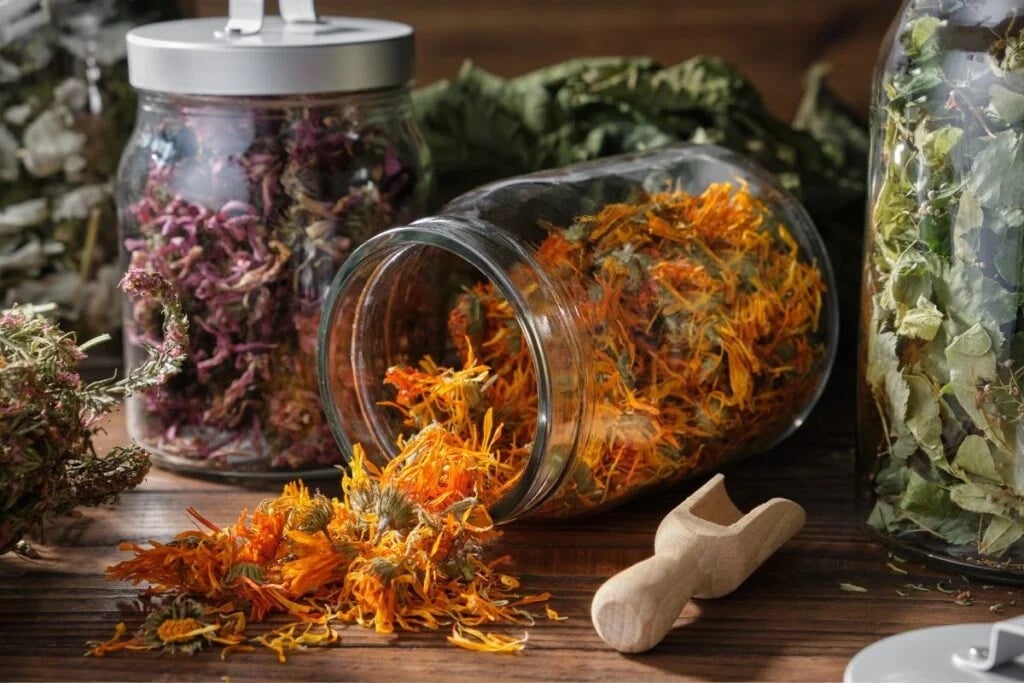Many people probably associate peach tea with iced peach drinks. To be honest, they have no relationship with peaches. Authentic peach tea is aromatic, mild, and made from natural peach fruits. Peach tea is remarkably promising for your health, so you can feel peach tea benefits. Let’s see, how do I make peach tea?
What Is Peach Drink Made of?
You can make peach tea from the peach fruit or the leaves. Peach-leaf tea is quite unusual and is mostly prepared for medicinal purposes. However, it also has a pleasant, sweet taste reminiscent of regular green tea.
Peach fruit tea is one of the most popular iced teas in the world. It can be prepared from the fruit alone or mixed with other teas. Possibly the most popular mixture is a combination of peach and black tea. It has a robust flavor, a peachy aroma, and sweetness.

Does Peach Tea Have Caffeine?
Pure peach tea, which is made exclusively from peach fruit or leaves, is decaffeinated. However, if peaches are mixed with black tea, green tea, or something else, this tea contains caffeine. The amount of caffeine in such peach tea will depend on the quantity of added tea.
We remind you that caffeinated teas are not appropriate for children, and pregnant and breastfeeding women should use them infrequently.
Let’s choose decaffeinated teas (e.g., rooibos tea) or make a tea using only peach fruit.
Benefits of Peach Tea
Peach tea is not only a tasty and refreshing drink. Peach leaves and peels have been used in traditional Chinese medicine since the 10th century. People are still using peaches to treat stomach problems, indigestion, diarrhea, dysentery, and hepatitis in Ayurveda.
Peach fruit and leaves are rich in antioxidants, minerals, and vitamins A and C. In addition, peach leaves contain anti-inflammatory substances similar to those in black and green tea.
Blend peach tea with other teas and herbs, and you will get additional health benefits.
Peach Tea Benefits
- Peach tea is an effective antioxidant that fights free radical damage to cells.
- It has anti-inflammatory properties, boosts immunity, and helps to overcome various diseases faster.
- Peach leaves contain substances such as catechin and theaflavin, which act as powerful antioxidants, and have antibacterial properties.
- Studies have confirmed the effectiveness of peach-leaf tea in treating constipation. This tea has a laxative effect.
- Peach leaf tea helps regulate blood sugar levels and reduces the risk of developing type 2 diabetes.
- The polyphenols in fruit and leaf tea help combat overweight. This drink reduces hunger, controls calorie intake, and boosts metabolism and fat burning.
- Peach fruit tea regulates blood cholesterol levels and lowers bad cholesterol.
- The fruits improve heart health, lower blood pressure, and protect against heart disease.
- Vitamins A, C, and E are essential for beautiful skin and good eye health.
- Vitamins C and K help wounds heal faster.
- White peaches increase nicotine metabolism and excretion, so white peach tea is more beneficial for smokers.

What Kind of Peaches Are Suitable for Making Tea?
Ideally, use fruits and leaves from your garden peach to make peach tea. However, not everyone has peach trees growing outside, so use fresh peaches bought at markets. The fruits are highly perishable, which means you must consume them immediately.
Unfortunately, peach leaves and tea aren’t available in some countries. However, various blends of black tea with peach pieces are possible. Pay attention to the ingredients, because only peach scents are added to the blends. Unfortunately, the aroma itself does not have any beneficial properties.
Avoid buying and consuming cold peach teas. Unfortunately, there is no peach in them (not even the aroma!), but various sugars, sweeteners, and artificial flavors. This tea has no health benefits.

Peach Tea Recipe
We suggest the recipe for one of the easiest-prepared and most refreshing peach teas. Drink it as a hot or cold beverage. However, this tea may contain caffeine because it is prepared with black tea.
Ingredients:
- 1 large, ripe peach
- 1/2 tsp. of black tea leaves
- 250 ml of water
- 1 tsp. of honey
Preparation:
- Wash the peaches very well and cut them into small pieces.
- Put them in a teapot with a filter, add the teaspoonfuls, and cover with boiling water.
- Leave to infuse for 5–10 minutes; drain.
- Add honey and stir well.
- You can serve it with a slice of peach, lemon, orange, or mint.

Iced Peach Tea
This tea has a refreshing effect on a hot day. Sweet, aromatic, and refreshing. It is also a great way to use up very ripe peaches.
Ingredients:
- 3 small and ripe peaches
- 1 tsp. of black or green tea leaves
- 1 cup of water
Preparation:
- Wash the peaches very well and mash them with an electric grater.
- Cover the tea leaves with boiling water and leave them to steep for 5–10 minutes.
- Strain the peaches through a fine sieve, leaving only the juice and a little pulp.
- Strain the tea and mix it with the peach puree.
- Add honey, agave syrup, or stevia to sweeten if needed. Serve chilled, add ice cubes, and garnish with peach slices or a mint leaf. Add a few drops of lemon juice or a slice, and you will get a more acidic tea.
Peach Leaf Tea
Peach-leaf tea has more beneficial substances than fruit tea. However, it has an earthier taste. Add some peach pieces, puree, or juice to get a more aromatic and sweeter tea.
Ingredients:
- 3 tbsp. of peach leaves (use peach peel in addition).
- 1 cup of water
Preparation: cover the peach leaves with boiling water and leave to soak for 10–15 minutes. Drain. Flavor it with honey, a lemon slice, or fresh peaches, if needed.

Is Peach Tea Suitable for Everyone?
Unfortunately, people allergic to peaches shouldn’t drink peach leaf or peach fruit tea. This tea can also have side effects for people allergic to apples, apricots, plums, and cherries.
Sources:
- https://www.webmd.com/diet/health-benefits-peaches
- https://simplelooseleaf.com/blog/loose-leaf-tea/peach-tea-benefits/
- https://caloriebee.com/nutrition/Peach-Tea-Benefits
- https://www.sipsby.com/blogs/tealover-101/all-about-peach-tea
Associative photos from © Canva.

